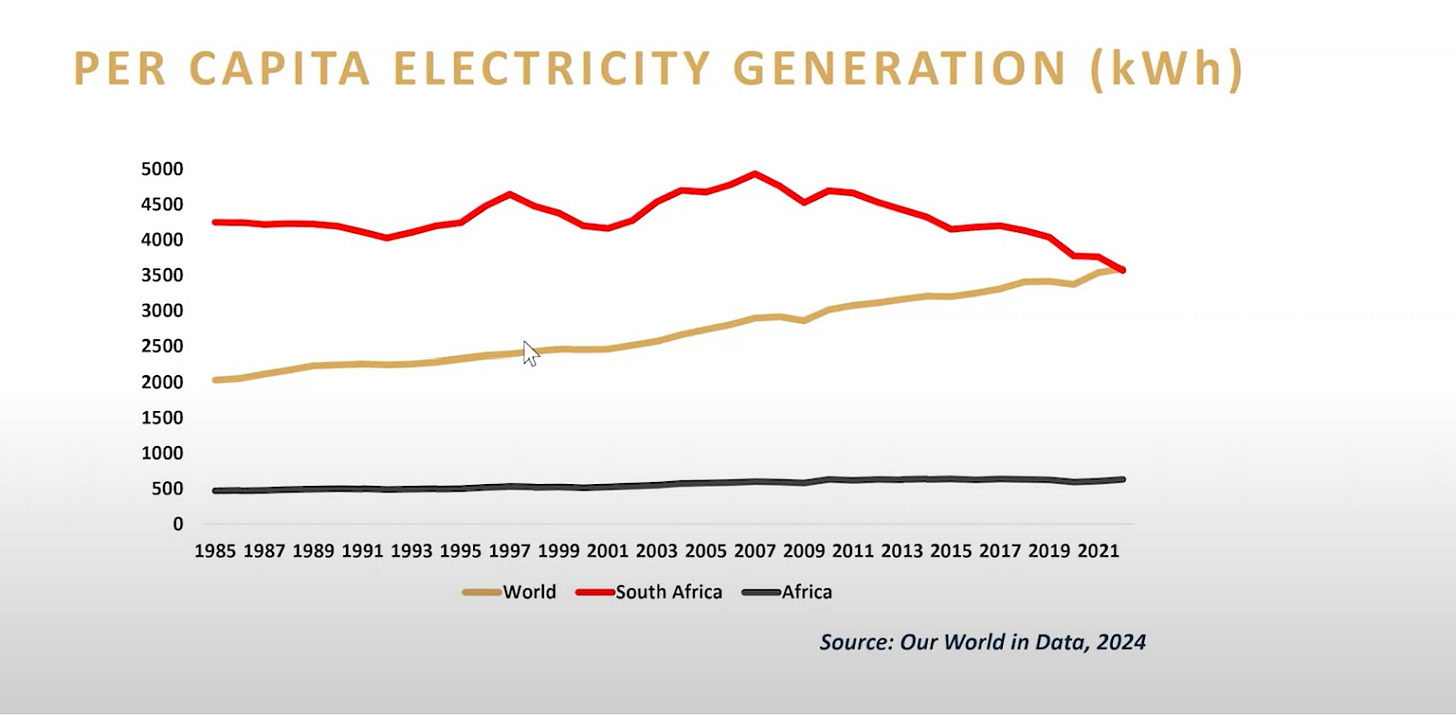The most destructive policy in modern SAs history?
The 1998 white paper on "privatisation"
Thomas Hobbes notably said that words are “the money of fools” and perhaps there isn’t a better way to demonstrate it than by analyzing the 1998 white paper on the Energy Policy of the Republic of South Africa, that put Eskom on the path of “privatization”.
Eskom, until the white paper was published, operated with greater privacy and autonomy from the government. During the Apartheid years, it functioned as an independent entity governed by legislation, with a board comprising a few engineers and one accountant. The institution was so well-managed that its debt rating was lower than that of the South African government.
One must question why the South African government, under Nelson Mandela, chose to "fix" something that wasn't broken. My suspicion is that with the regime change in South Africa, there was a desire to distance from the old order, and every unconventional idea was given credibility. The then ANC government made a series of policy blunders, and unfortunately, we are paying for them today. Notably, South Africa's Fusion Program as well as our research into Fly-Ash Technology fell victim to ideological purism that prioritized “privatization” over common sense.
How exactly companies were going to invest into products that improve industry and have only long term “patient capital” knock-on effects is still not clear to me.
The purpose of the 1998 white paper was to put Eskom on a path towards unbundelling - a policy whose global brainchild was Enron when they lobbied the United States Government to dismantle the successful New Deal Policies in America.
The term "unbundling" may seem appealing to libertarians, but as numerous critiques have pointed out, the hierarchical relationship is increasingly becoming nonsensical. An auction trading system does not truly represent a free market, instead, it aims to simulate one within a natural monopoly. However, if issues arise, the "centralized" system operator still has to implement load shedding, and, as was the case in Australia, on June 22 2022, they have to suspend trading when the system becomes unstable. In a genuinely free market, the optimal hierarchical relationship could be an integrated utility or a tailored system. A government that imposes hierarchy is not truly "free."
The 1998 white paper used the "language of fools" when it suggested privatization. It advocated for Integrated Resource Planning and notably emphasized that the government must adhere to "the least cost energy resource."
Why prioritize least cost over value for money procurement?
It stated, "government will require the use of integrated resource planning methodologies in evaluating further electricity supply investments and the decommissioning of older power stations."
Why should the government and not Eskom be the best suited entity to determine when to build new power stations?
How does giving government so much control remotely mean “privatization”?
The 1998 white paper shifted more control to the government and reduced Eskom's autonomy. Through the use of clever techniques of modelling ("black boxes") and "least cost trickery," the government concluded that South Africa didn't require additional power stations. Consequently, Eskom let go of its civil engineers, and when tasked with rebuilding Medupi and Kusile, they had only one engineer remaining in the organization.
The consequences are evident; due to this flawed policy and a series of subsequent missteps, South Africa finds itself generating electricity below the global average. The South African economy is a heavy industry economy, requiring approximately 1GW of electricity for every million people.
Ideally, SA should aim for 70GW of power, but currently, it stands at 25GW, largely attributed to Eskom’s mismanagement and that misguided notion of "privatization."
Why should South Africa have an IRP at all?
Avis does not have an integrated vehicle plan open to public consultation, with the Department of Transport determining the number of cars on the road or their removal.
Pick & Pay does not currently participate in an integrated bread procurement plan with the Department of Agriculture, wherein specific farmers are designated for procurement. The company determines its bread sourcing independently.
It is time for South Africans to reject the concept of a Integrated Resource Plan entirely. The responsibility of determining South Africa’s electricity mix should fall under Eskom's system operator. It should be an internal organisational matter, not a pet project for ideologues, conflicted university professors and politicians who are keen on getting their family in laws in on the deal.
One way to rectify this is to openly acknowledge that the 1998 white paper on "privatization" was a historical mistake and to return Eskom to the framework envisioned by Hendrik van der Bijl in 1922.
Eskom’s mandate should be to ensure the delivery of affordable electricity in the public interest.
Without addressing the flawed policy environment, Eskom will be unable to recover, regardless of its leadership or the "black box" approaches employed.



The next question is who really wrote the 1998 white paper?
Eskom’s mandate should be to ensure the delivery of affordable electricity in the public interest.
Interesting comment and question?
It is time for South Africans to reject the concept of an integrated bread procurement plan and a Integrated Resource Plan entirely. The responsibility of determining South Africa’s electricity mix should fall under Eskom's system operator. It should be an internal organisational matter, not a pet project for ideologues, conflicted university professors and politicians who are keen on getting their family in laws in on the deal.
Dewald
Dewald
26 Feb 2024
The next question is who really wrote the 1998 white paper?